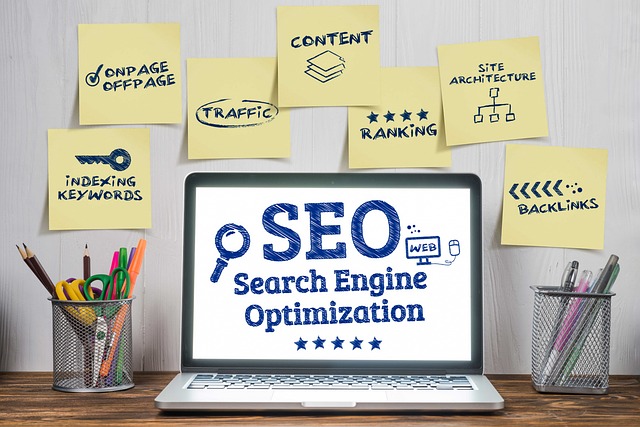
Search Engine Optimisation, or SEO, is a term that buzzes around the digital marketing world with relentless frequency, and for a good reason. This comprehensive blog aims to elucidate what SEO is, why it is indispensable for online businesses, especially small enterprises, and how to harness its power to amplify your online presence.
Understanding SEO and Its Importance
SEO stands for Search Engine Optimization. It’s an intricate process designed to increase both the quality and quantity of website traffic, as well as exposure to your brand, through organic search engine results. Think of search engines as librarians and websites as books. SEO helps the librarian find the right book that contains the answers to inquiries from countless researchers entering the library.
In simpler terms, when potential customers type a query into a search engine, SEO increases the likelihood that your website appears in the top results, capturing attention, engendering trust, and boosting the chance of these visitors turning into customers.
How Search Engines Work
Search engines like Google and Bing use algorithms to crawl webpages, digest their content, and index them. When a user queries a term, the search engine scours its index to provide the most relevant and valuable results. SEO enhances this relevance, effectively telling search engines who you are, what you offer, and why your service or product is imperative.
Pillars of SEO
SEO can be divided into two main categories:
- On-Page SEO: This encompasses the elements within your website that you can control directly, such as content, meta tags, alt attributes, and internal links. A well-structured website with clear, valuable content and appropriate keywords is essential.
- Off-Page SEO: This involves external factors that affect your site’s perceived trustworthiness and authority, like backlinks from other reputable sites. It’s akin to a popularity contest; the more sites that link back to you, the more credible you appear.
The Role of Keywords
A central component of SEO is keyword research. Keywords are the words or phrases that users type into search engines. By thoroughly understanding the keywords relevant to your business—and integrating them into your site’s content authentically—you improve the odds that your site will match users’ search terms.
The User Experience Factor
User experience (UX) and mobile-friendliness have become instrumental in SEO. A site that loads swiftly, is easy to navigate, and adapts seamlessly to mobile devices contributes positively to its ranking. A satisfying UX means a lower bounce rate and higher time-on-page metrics, signals to search engines that your site is reliable.
Link Building Strategies
Link building is a potent aspect of any SEO strategy. It involves getting other trustworthy websites to link back to your site. These backlinks signal to search engines that others vouch for your content, boosting your site’s credibility and search ranking.
SEO Don’ts
Avoid common SEO mistakes like keyword stuffing, neglecting mobile users, and using non-meaningful link anchors. These could not only hurt your SEO performance but could also lead to penalties from search engines.
SEO Adaptation
Search engine algorithms are always evolving. What works today might not work tomorrow, so it’s crucial to stay updated with algorithm changes and tweak your SEO strategies accordingly. Regular monitoring of your website’s SEO performance and adjusting strategies is crucial for sustaining high search rankings.
Local SEO for Small Businesses
For small businesses, local SEO can be a game-changer. By optimising for local search queries, registering your business on Google My Business, and managing your online reviews, you can significantly enhance visibility in your immediate vicinity—a sandpit where the big players can’t compete. For businesses aiming to boost their local SEO efforts in Hampshire, try searching on Google using the keyword “Hampshire SEO.”
SEO Tools
Fortunately, the digital age offers a wide array of SEO tools, both free and paid, to help with your SEO analysis and improvement tasks. Google Analytics, SEMrush, and Moz are just a few of the names that can equip you with the data needed to refine your SEO strategies effectively.
Conclusion
In sum, SEO is not merely an added benefit for your business—it’s a critical pillar of your online presence. By grasping its fundamentals and avoiding common pitfalls, you can elevate your website’s visibility and ensure that your small business thrives in the competitive digital marketplace. SEO is your silent online advocate; invest in it wisely, and you will reap tangible results.